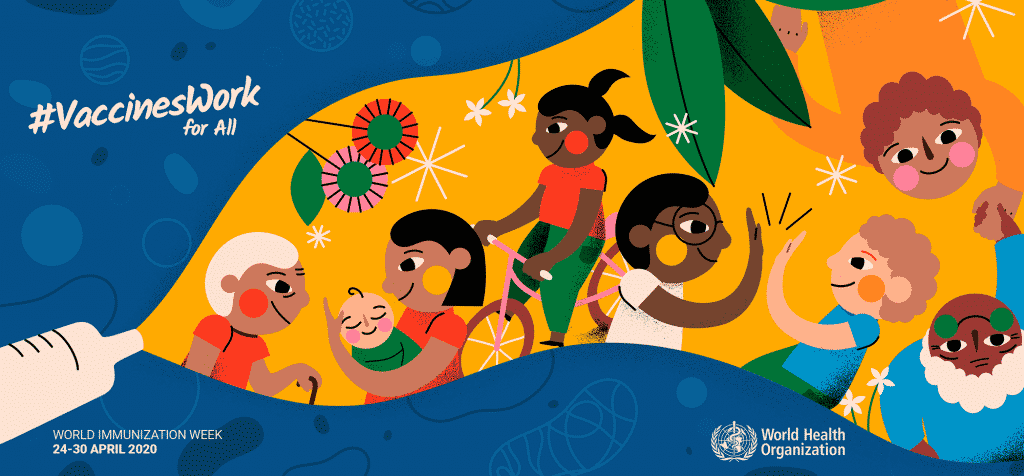World Immunisation Week is the 24th to the 30th May. We take this time to raise awareness of the importance of Vaccines.
What are vaccines?
Vaccination is one of the most effective ways to prevent diseases. A vaccine helps the body’s immune system to recognise and fight pathogens like viruses or bacteria, which then keeps us safe from the diseases they cause. Vaccines protect against more than 25 debilitating or life-threatening diseases, including measles, polio, tetanus, diphtheria, meningitis, influenza, tetanus, typhoid and cervical cancer.
Why do we need to be vaccinated?
- Vaccines defend us against deadly diseases. They do this by working with our body’s natural defences to stop us from getting sick. It is a safe and clever way to produce a protective response, helping to keep us healthy, safe and strong.
- Two key reasons to get vaccinated are to protect ourselves and to protect those around us. Not everyone can be vaccinated ─ including infants who are too young to be vaccinated, older people who are at risk of serious diseases and those who are seriously ill. They depend on others getting vaccinated to ensure they are also protected through vaccines.
- All the ingredients in a vaccine help ensure they are safe and effective for you and your family. Vaccine ingredients can look unfamiliar when listed on a label but they occur naturally in the human body, the natural environment and the foods we eat.
- It is important to get the vaccines you need – on time, every time. Don’t wait until you are exposed to a serious illness – like during an outbreak. There may not be enough time to receive all the vaccine doses needed to keep you safe from the disease.
Please remember:
- At all ages, vaccines save lives and keep us safe
Vaccines protect our children across communities and countries and prevent outbreaks of vaccine-preventable diseases. Responding to outbreak after outbreak is expensive, ineffective and costs lives. The only sustainable response is prevention ─ by ensuring that everyone is vaccinated, at the right time, with the right vaccines through the course of their lives. - While most children today are being vaccinated, far too many are left behind
Unacceptably, it’s often those who are most at risk – the poorest, the most marginalised, those touched by conflict or forced from their homes – who are persistently missed. If these children do get sick, they are at risk of the severest health consequences, and least likely to access lifesaving treatment and care. - 2020 is the Year of the Nurses and Midwives
For health workers, every check-up is an opportunity to check in on vaccination for people of all ages: children, youth, adults and older people - Everyone can be a vaccine champion
Talk to people about the benefits of vaccines. Vaccines save lives, help children learn and grow and prevent serious illness and disability
For more information, please see https://www.who.int/news-room/campaigns/world-immunization-week/world-immunization-week-2020

